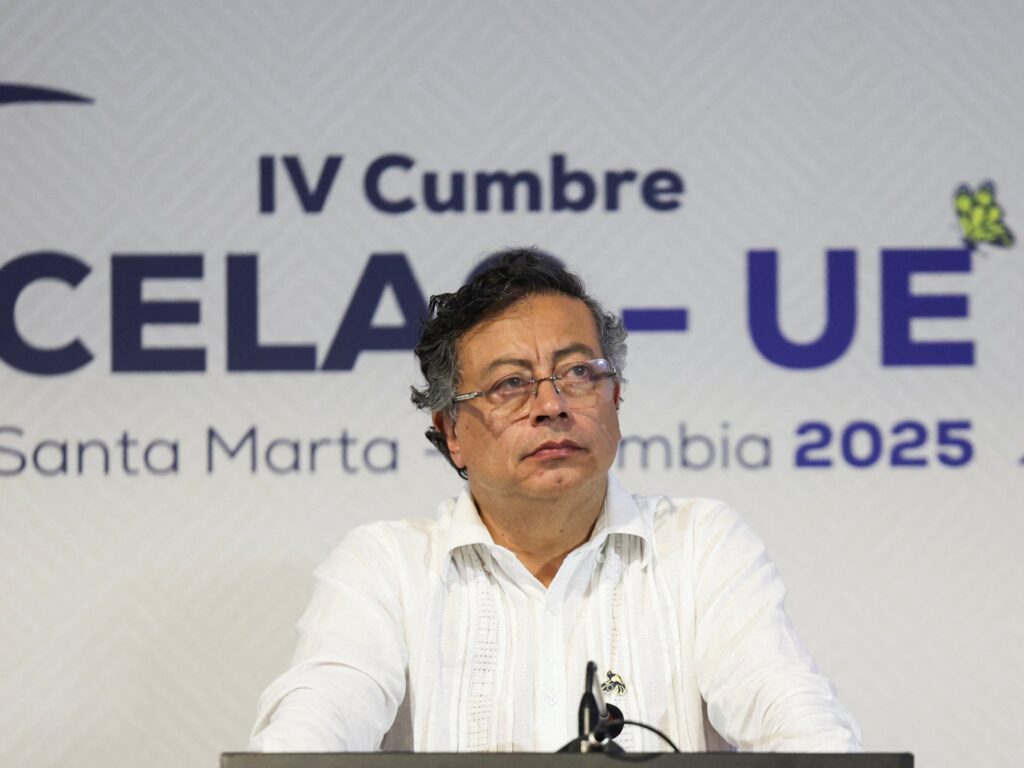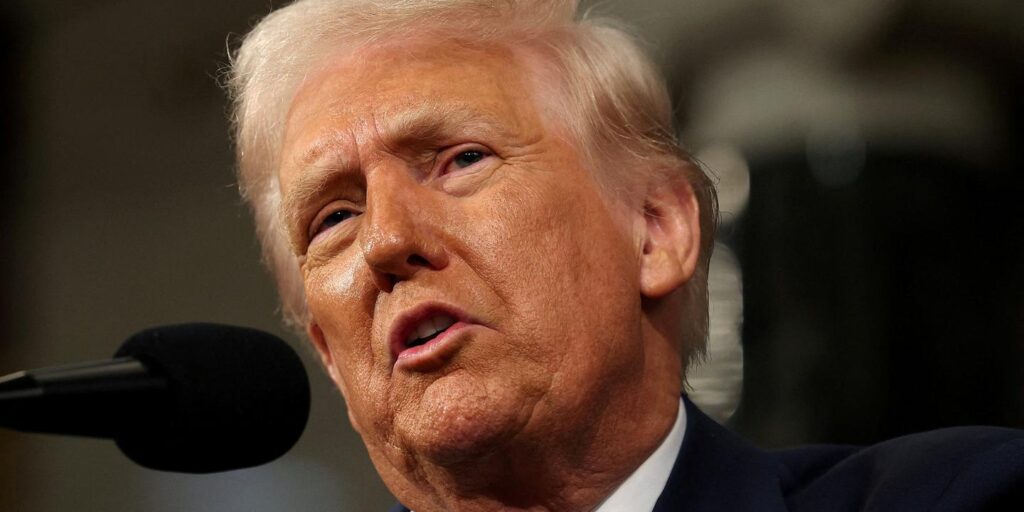Bogota, Colombia – Eight underage rebel recruits were killed last week after the Colombian government launched a fresh military offensive against a prominent armed group, according to President Gustavo Petro.
The news comes amid soaring child recruitment by Colombia’s armed groups in recent years and has ignited a debate over whether forced recruits can be protected on the battlefield.
Recommended Stories
list of 3 itemsend of list
In a Monday post on the social media platform X, President Petro confirmed that seven adolescents were killed in a government bombing campaign in the southern Guaviare department on November 10.
Another minor was killed three days later, on November 13, in a government offensive in the eastern department of Arauca.
Those deaths bring the total number of teenage fatalities to at least 12 in under two months.
“All of them were victims of forced recruitment by criminals who have dragged them into hostilities and deprived them of protection,” Petro, himself a former rebel, wrote in his post.
But the question of how to protect child recruits is a controversial one in Colombia, where armed actors have increasingly sought to exploit minors.
An uptick in child recruitment
For more than six decades, an armed conflict has roiled Colombia, pitting government forces against right-wing paramilitaries, left-wing rebels and criminal groups.
Official government statistics suggest that those groups have sought to grow their ranks by appealing to people under the age of 18 — and in some cases, coercing them into work.
According to the government, the number of child recruits has increased by 1,000 percent from 2021 to 2024.
That uptick was echoed in a June report from the United Nations. It determined that, from 2022 to 2024, there were 474 confirmed cases of armed groups using or recruiting minors.
In the first quarter of 2025, the office received allegations of a further 118 child recruits.
Some of the victims, the report added, were as young as nine years old. Many were from Colombia’s Indigenous communities.
The latest casualties come as Petro’s government intensifies its counterinsurgency against the Estado Mayor Central (EMC), a dissident group that splintered off from the now-demobilised Revolutionary Armed Forces of Colombia (FARC).
Elizabeth Dickinson, the deputy director for Latin America at the International Crisis Group, a think tank, said that the EMC is notable for drawing on children to bolster its ranks.
“The EMC, particularly, is perhaps the group that’s most responsible or most guilty of recruiting minors in recent years,” she told Al Jazeera.
She explained that the group uses children as “human shields”, deploying them around the perimeter of its commanders’ positions.

Petro faces backlash
But how the government approaches military actions that may harm child recruits has drawn criticism in Colombia.
The country is facing a key presidential election in 2026, and Petro’s left-wing government has faced backlash for the recent string of deaths.
Already, the opposition has seized upon the killing of child recruits as a potential violation of international humanitarian law.
Lawmakers in Congress have proposed a motion of censure against Defence Minister Pedro Sanchez for the deaths.
Some, including Representative Katherine Miranda, have called for Sanchez to resign immediately.
On social media this week, Miranda also directed an appeal to Petro: “Face the country and answer for the state crime you are committing against children who are victims of forced recruitment.”
Dickinson at the International Crisis Group told Al Jazeera that child recruits are not without protection under international law, as Petro’s recent post might suggest.
“That is not correct,” Dickinson said. “These are victims of conflict. They are children. They were forcibly recruited.”
The Geneva Convention, for instance, requires state parties to “take all feasible measures” to ensure that child recruits under age 15 are not involved in hostilities.
“Children are simply a reality in the conflict today,” said Dickinson. “And so the government has to take that on board if they are engaging in bombardments.”

‘Brutally naive’
Hilda Molano, a coordinator at the Coalition Against the Involvement of Children and Young People in the Armed Conflict in Colombia (COALICO), said it can be difficult to attribute blame for the deaths of child recruits in combat.
But she called on all parties to take the rights of children into account, despite the complicated situation.
“In cases like these, it is clear that no single party is responsible; ultimately, it is a shared responsibility,” Molano told Al Jazeera.
Molano called for the Colombian government to do more to deter child recruitment and to improve its presence in conflict zones.
Children in conflict zones, she said, face “the double risk” of being recruited by armed groups and being killed by state security forces.
The Petro government, meanwhile, has maintained that its actions adhere to international laws for the protection of children.
Al Jazeera has reached out to the Ministry of Defence for comment but did not receive a response by the time of publication.
On social media, the president claimed his efforts had already led to the release of 2,411 minors.
“Peace is the best way to prevent children from being involved in war,” he wrote.
He also confirmed his government’s plans to continue its campaign against the EMC, which has been responsible for a wave of car bombs and drone attacks targeting military and police installations this year.
On Tuesday, Petro dismissed calls to cease the government strikes, writing on X: “To say that the bombings should stop when we are within IHL (international humanitarian law) is brutally naive.”


